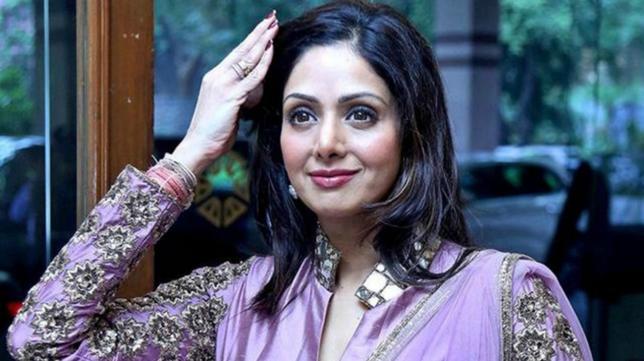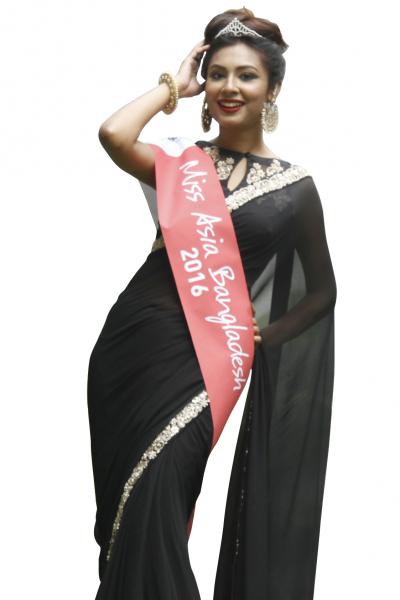
bdnews24.com Editor-in-Chief Toufique Imrose Khalidi speaks at the ‘Meet the Editor’ event organised by ULAB’s Media Studies and Journalism Department on its campus.
One must be ready to face everyday challenges of the profession before opting to become a journalist, says bdnews24.com Editor-in-Chief Toufique Imrose Khalidi.
“Journalism is not a business for the fainthearted,” he said at the ‘Meet the Editor’ programme organised by the Media Studies and Journalism Department of the University of Liberal Arts Bangladesh (ULAB) on Thursday.
“My point is, don’t get into a job that you don’t enjoy. Don’t be a journalist if you don’t have passion for it. It is not just like any other job.”
“If something big happens, you have to be there in the middle of the night or after a long, stressful day,” explained Khalidi.
“If you’re hoping to attend family dinner every time, journalism is not your profession. If you are not prepared to miss your favourite niece’s birthday party, journalism is not the right choice for you.”

bdnews24.com Editor-in-Chief Toufique Imrose Khalidi at the ‘Meet the Editor’ event organised by ULAB’s Media Studies and Journalism Department on its campus.

bdnews24.com Editor-in-Chief Toufique Imrose Khalidi speaks at the ‘Meet the Editor’ event organised by ULAB’s Media Studies and Journalism Department on its campus.
The head of Bangladesh’s first bilingual internet-based newspaper also took question from students in the audience.
Fourth-year student Mayukh Islam asked, “Many people tell online journalists to work in newspapers, while others claim that the print media is now dying. How is that possible?”
Citing BTRC data, Khalidi said, “Fifty million people are using the internet in the country. If 10 percent of them accesses news sites, that’s 5 million.
“The combined circulation figure of all newspaper in Bangladesh is not even 1 million.”
Responding to another student’s question, he said, “No one in the world is neutral, nor am I. I am objective, but not neutral. Being neutral and being objective are two different things.”
“When right-wing radicals try to destabilise society, I don’t support them. I cover them objectively. But I will not support them.”
Students also asked whether Khalidi wanted to sell off bdnews24.com due to the financial crisis during the military-backed caretaker government’s rule.

bdnews24.com Editor-in-Chief Toufique Imrose Khalidi took question from the students during the ‘Meet the Editor’ event organised by the institution’s Media Studies and Journalism Department.

A ULAB student asks bdnews24.com Editor-in-Chief Toufique Imrose Khalidi a question during a ‘Meet the Editor’ event organised by the institution’s Media Studies and Journalism Department.
Khalidi explained how the rumour had spread. “One of my friends, who owns another news outlet, came to have lunch with me. And I treated him to the best possible lunch around.
“He went back to his office and told his colleagues ‘Oh, bdnews24.com is up for sale and I have had negotiations with Toufique’.”
“I even got a phone call from that (friend’s) office. That’s the way the word got around.”
The bdnews24.com editor-in-chief also shared with the students his experience of working during the last caretaker regime.
“We suffered but we enjoyed doing the work. We flourished at that time and suddenly we became the largest news provider.
“We had one of the largest newsgathering operations at the time. We suffered and we recovered from that.”
He also said bdnews24.com plans to expand its operations. “We would like to take it to a different level.”
The ULAB students were curious to know about The Daily Star Editor Mahfuz Anam’s recent admission of running DGFI-fed baseless reports during the military-backed caretaker regime.

ULAB Vice-Chancellor Prof Imran Rahman makes a point while speaking at the ‘Meet the Editor’ event organised by the institution’s Media Studies and Journalism Department.

ULAB’s Media Studies and Journalism Department head Prof Dr Jude William Genilo speaks at the ‘Meet the Editor’ event.
They asked if Anam’s acts would destroy entire media’s credibility in Bangladesh.
The bdnews24.com editor-in-chief said a media unit’s credibility depends on its editor’s leadership, and the system and process he or she followed.
“People are not losing faith in the entire media. Also, The Daily Star didn’t always do wrong things,” he said.
He advised the students to read more of the country’s political, cultural and media history.
“The media has a bit of a complex history because it has many players. But it’s true Daily Star was not the only newspaper to publish those reports at the time,” he said.
Khalidi stressed the need to understand the media’s job.
“In [a programme in] India, I was told we have to be constructive. We have to promote friendship between…[I said] No, it’s not our job. The politicians will do that. We will cover and analyse it,” he said.

A ULAB student interviews bdnews24.com Editor-in-Chief Toufique Imrose Khalidi for a campus-based channel after the ‘Meet the Editor’ event.

“What Daily Star did wrong was, I think, it tried to get involved in Bangladesh’s political process,” he said in response to a question.
“After the 11th (Jan 11, 2007), two editors went to breakfast meetings with the then army chief every day. We all knew it.
“One of my colleagues said Mahfuz Anam phoned the others to join a meeting with the army chief. It’s not a journalist’s job,” Khalidi said.
“The matter is being made into a political issue, but there is not much discussion on the basics of journalism,” he observed.

ATM Sajedul Huq, Director of ULAB’s Center for Language Studies, speaks at the ‘Meet the Editor’ event organised by the institution’s Media Studies and Journalism Department.

ULAB’s Media Studies and Journalism Department Associate Professor Md Asiuzzaman conducts the ‘Meet the Editor’ event.
“Where actually were the mistakes? Was there any problem in the editorial process?” he asked.
“I admit that we also make mistakes. Our English site doesn’t make me happy all the time. There are also mistakes. But no-one can distort information. Information cannot be published without being checked. There is a process for this.”
He said accuracy was more important in journalism than speed.
“I don’t want to be first all the time…I don’t mind being be second but accurate all the time,” he said.
ULAB Center for Language Studies Director Sajedul Huq asked if language skills were essential for landing a job at bdnews24.com.
“The purpose of journalism or journalistic reporting or writing is to communicate with the public with the easiest possible language,” Khalidi replied.
“Writing headlines, you learn it over time, writing teasers is a different skill, writing news copy is a different skill, and, then, people have to have passion for it.
“You have to enjoy doing this job. I once recruited a first-class-first journalism professor. He said he wanted to try.

A ULAB student asks bdnews24.com Editor-in-Chief Toufique Imrose Khalidi a question during a ‘Meet the Editor’ event organised by the institution’s Media Studies and Journalism Department.

bdnews24.com Editor-in-Chief Toufique Imrose Khalidi speaks at the ‘Meet the Editor’ event organised by ULAB’s Media Studies and Journalism Department.
“After 18 days, he didn’t even meet me face to face. He sent an email ‘I can’t take the pressure, sorry’.
“But much younger people, even his students, were comfortable with the job. Every job has its own characteristics and problems.
“Yes, anyone who can tell stories in the simplest language, can…,” he said in reply to Huq’s question.
ULAB’s journalism department Associate Professor Md Asiuzzaman said Khalidi’s speech was “probably one of the comprehensive speeches and discussions in this room in many years”.
“It took me back to 1991. We probably started our career in the same newsroom. He used to cover Foreign Office. I used to cover Parliament and politics.
“The infrastructure and resources we are talking about, there was no mobile phone.
“I still have the typewriter I started my career with. If you see it now, you will probably think that it is something to exercise your finger.
The departmental head, Prof Genilo, concurred with Khalidi in telling his students that they “need to make a lot of sacrifice if you want to be journalist by profession”.
“And your sacrifices don’t start when you become a journalist. This sacrifice will start now as a student,” he said.
Source: Bd news24









